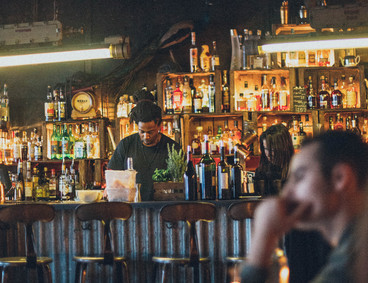- About Council
- Have your say
- Contact us
- Job vacancies
- Partners and advisory groups
- News and information
- Meetings
-
Plans and reports
- Annual and Long-term Plans
- District Plan
-
Council strategies and plans
- Long-term Plan strategies
- General strategies
- Reserve management plans
-
Draft strategies and policies
- Freedom camping policy review
- Culture and creativity strategy
- Local alcohol policy
- Supporting the health of our community
- Environment Strategy
- Updating our 10-year walking and cycling network plan
- Completed – Emissions reduction strategy
- Completed – Smokefree policy
- Completed – Gambling policies
- Completed – Speed Management Plan 2023–33
- Completed – Stormwater management framework
- Completed – Open space strategy
- Completed – Growth strategy
- Completed – Workforce plan
- Council policies
- Bylaws
- Reports
- Resources and reference materials
- Services and Requests
- Projects
Developing a local alcohol policy for Kāpiti
 We’re looking at how we can reduce alcohol-related harm on the Kāpiti Coast.
We’re looking at how we can reduce alcohol-related harm on the Kāpiti Coast.
While most people drink responsibly, the negative impacts from drinking, including binge drinking, public intoxication and addiction, have long been a concern in the community. Injury, family violence, long-term health issues, road death, crime and foetal alcohol syndrome are some of the harms caused by alcohol.
Council is working with Health and Police to find out if making rules about how alcohol is sold and supplied could make our community healthier. One thing we can do to help this kaupapa (topic) is create a local alcohol policy.
What it is
A local alcohol policy is a set of rules a council makes with help from the community. These rules are important when the local district licensing committee decides whether to allow someone to sell and supply alcohol. These policies are supported by the Sale and Supply of Alcohol Act 2012 and focus on specific conditions for getting a licence.
Local alcohol policies can:
- limit where club, on-, and off-licensed premises can operate in an area, or how close they can be to facilities like schools
- limit the number of new club, on-, or off-licences that can be issued in a particular area
- restrict or extend the maximum trading hours set in the Act
- recommend discretionary conditions on licences or groups of licences, and/or impose ‘one-way door’ restrictions, so patrons can’t enter or re-enter a premises after a particular time
- set different rules for different licence types or areas in the district.
What’s happening
Creating a local alcohol policy takes several steps, and it can take a few years to develop a draft policy.
First we need to understand what our community thinks about alcohol and if we need more rules for selling it. We also need to see if having a local alcohol policy would help the Kāpiti Coast. We're working with Regional Public Health and Police to understand more about alcohol issues here.
In late 2021, more than 400 people answered a survey about alcohol. Most of them agreed we should have stricter rules for selling alcohol on the Kāpiti Coast.
The survey helped us understand how people in our community feel about alcohol, and gave us an idea of what rules might work best.
Read the results of the survey [PDF 1.1 MB].
Next steps
We're working with our community and stakeholder groups to create a health strategy for the Kāpiti Coast district. This work should be finished by the end of 2024. Before we look more at the rules for selling alcohol, Council wants to finish this Health Strategy, which will help give us a picture for health and wellbeing under which a proposed local alcohol policy may be set.
Once we've finished developing the Health Strategy, Council will decide what to do about rules for selling alcohol on the Kāpiti Coast. If Council decides to look at the rules, we'll talk to our community about the draft policy.
If you have any questions, please email [email protected].